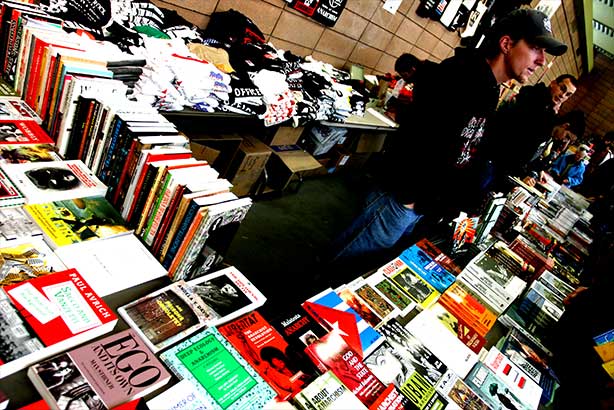 Before the Arab Spring, our work on the transnational history of protest camping was generally regarded as “too niche”, or “quirky activist stuff for idealists”. But by April 2011, as Tahrir Square became an international sign that perhaps another world was possible, the phenomenon of protest camping gained broader appeal. We were contacted that spring by a number of commissioning academic editors interested in the possibility of turning our on-going research into a book. After meeting with a handful of publishers, the choice to go with Zed felt like a nobrainer. An independent publisher run as a workers-cooperative seemed like the perfect fit for a collectively written book about collective politics.
Before the Arab Spring, our work on the transnational history of protest camping was generally regarded as “too niche”, or “quirky activist stuff for idealists”. But by April 2011, as Tahrir Square became an international sign that perhaps another world was possible, the phenomenon of protest camping gained broader appeal. We were contacted that spring by a number of commissioning academic editors interested in the possibility of turning our on-going research into a book. After meeting with a handful of publishers, the choice to go with Zed felt like a nobrainer. An independent publisher run as a workers-cooperative seemed like the perfect fit for a collectively written book about collective politics.
This decision got us thinking more broadly about the choices we make around publishing as academic-activist researchers. And conversely, about the decisions publishers like Zed make about us and about our work. To coincide with the announcement of our contract Protest Camps Research Collective member Anna Feigenbaum decided to organise a roundtable, in its most literal sense. One late October evening she was joined for dinner around her table by some of London’s most prominent independent publishers. Together they discussed the current state of both the progressive press and the academy, covering a range of issues around publishing politics and markets, from finding the right niches-within-niches to copyediting nightmares.
You can read their roundatable discussion, “Everything We Do is Niche,” in the latest issue of Interface: A Journal For and About Social Movements (3:2)

